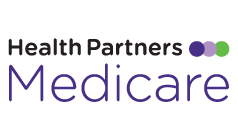Protect Yourself from Medicare Fraud
Medicare fraud happens, for example, when Medicare is billed for services or supplies you never received. Fraud costs Medicare a lot of money each year, and we all pay for Medicare fraud through higher health care costs and higher taxes.
There are regulations to protect you against Medicare fraud, but fraud still happens. Reviewing your claims and closely guarding your personal information can help protect you and Medicare against fraud and abuse.
Tips to protect yourself from Medicare fraud
- Never allow a friend or relative to use your member card. Immediately report a lost or stolen card.
- Never give your card to someone offering free medical services. If a service is free, your insurance information is not needed.
- Keep a journal of doctor visits and other medical services you receive to compare with your statements.
- Carefully examine all your statements, including Medicare Part D. Be on the lookout for doctor visits you did not have, medical provider names that are unfamiliar, and supplies/equipment you did not order or never received.
What to do if you think you are a victim of Medicare fraud
If you find something unusual on a claim or statement, call your doctor or medical provider first. It may be a simple error. If not, report it immediately.
If you think you have encountered possible fraud, you can contact any of the agencies listed below for assistance.
- 1-800-MEDICARE (1-800-633-4227). TTY users call 1-877-486-2048 24 hours a day, seven days a week.
- Fraud Hotline of the Office of Inspector General, U.S. Department of Health & Human Services at 1-800-447-8477. TTY users call 1-800-377-4950.
- Health Partners Plans' Special Investigations Unit 1-866-HP-SIU-4U (1-866-477-4848) (TTY 1-877-454-8477)
- Federal Trade Commission's ID Theft Hotline at 1-877-438-4338. TTY users call 1-866-653-4261.

